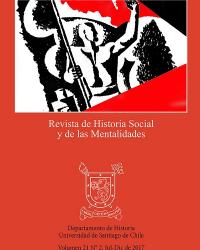Culture, Society, Daily Life and Politics During Stalinism: A Historiographical Essay
DOI:
https://doi.org/10.35588/j6tjtj13Keywords:
Stalinism, Historiography, Daily Life, Cultural PracticesAbstract
Last years, there were great progresses on the studies about the sovietic era. We introduce on this article a historiographical approach on several studies developed on the last decades -since the collapse of Soviet Union- at the anglo-saxon historiography focused pn the study of value systems, cultural and social practices at the time of the Stalin regime. The sovietic society had to deal with deep economic transformations as the results of the first five-year plans, the political purges and the utopia of a new sovietic man. Stalinism supposed a great transformation for a country that still remained mostly rural on 1917. The depth of this revolutionary change can be observed not only on government and economy, but also on ordinary life, society, culture, values and costumes. These are the axes that more contributed to illuminate the new discussions on this issue.
Downloads
References
Arendt, Hannah. Los orígenes del totalitarismo. Madrid: Alianza, 2006. Impreso.
Beer, Daniel. “Origins, Modernity and Resistance in the Historiography of Stalinismˮ. Journal of Contemporary History, vol. 40, nº 2, April 2005, pp. 363-379. Impreso.
Davies, Sarah. Popular Opinion in Stalin´s Russia: Terror, Propaganda and Dissent. Cambridge: Cambridge University Press, 1977. Impreso.
Fitzpatrick, Sheila. La revolución rusa. Buenos Aires: Siglo XXI, 2005. Impreso.
Fitzpatrick, Sheila. “An interview with Sheila Fitzpatrick”. Kritika: Explorations in Russian and Eurasian History, vol. 8, nº 3, Summer 2007, pp. 485-486. Impreso.
Fitzpatrick, Sheila. Stalin´s Peasants. Resistance & Survival in the Russian Village after Collectivization. Oxford: Oxford University Press, 1994. Impreso.
Fitzpatrick, Sheila. Education and Social Mobility in the Soviet Union, 1921-1934. Cambridge: Cambridge University Press, 1979. Impreso.
Fitzpatrick, Sheila. Everyday Stalinism. Ordinary Life in Extraordinary Times: Soviet Russia in the Thirties. Oxford: Oxford University Press, 1999. Impreso.
Figes, Orlando. La revolución rusa. La tragedia de un pueblo, 1891-1924. Barcelona: Edhasa, 2001. Impreso.
Figes, Orlando. Los que susurran. La represión en la Rusia de Stalin. Barcelona: Edhasa, 2009. Impreso.
Fritzsche, Peter. De alemanes a nazis, 1914-1933. Buenos Aires: Siglo XXI, 2006. Impreso.
Gellately, Robert. Lenin, Stalin and Hitler: the Age of social Catastrophe. New York: Alfred Knopf, 2007. Impreso.
Gleason, Abbott. Totalitarianism: The Inner History of the Cold War. Oxford: Oxford University Press, 1993. Impreso.
Goldhagen, Daniel. Los verdugos voluntarios de Hitler. Los alemanes corrientes y el Holocausto. Madrid: Taurus, 1997. Impreso.
Herf, Jeffrey. El modernismo reaccionario. Tecnología, cultura y política en Weimar y el Tercer Reich. México: Fondo de Cultura Económica, 1984. Impreso.
Hoffmann, David. Peasant Metropolis: Social Identities in Moscow, 1929-1941. U.S.A.: Cornell University Press, 1994. Impreso.
Hoffmann, David. Stalinist Values. The cultural norms of Soviet modernity, 1917-1941. U.S.A.; Cornell University Press, 2003. Impreso.
Irving, David. La guerra de Hitler. Buenos Aires: Planeta, 1989. Impreso.
Kershaw, Ian, ed. Stalinism and Nazism: dictatorships in comparision. Cambridge: Cambridge University Press, 1997. Impreso.
Kershaw, Ian. La dictadura nazi: problemas y perspectivas de interpretación. Buenos Aires: Siglo XXI, 2004. Impreso.
Kotkin, Stephen. “Modern Times: The Soviet Union and the Interwar Conjuncture”. Kritika: Explorations in Russian and Eurasian History, vol. 2, nº 1, Winter 2001, pp. 111-164. Impreso.
Kotkin, Stephen. Magnetic Mountain: Stalinism as a Civilization. California: University of California Press, 1995. Impreso.
Lida, Miranda. “Entrevistas sobre el nazismo: Robert Gellately y Peter Fritzsche”. Entrepasados, nº 33, 2008, pp. 121-132. Impreso.
Madison, Bernice. Social Welfare in the Soviet Union. U.S.A.: Stanford University Press, 1968. Impreso.
Moore Jr., Barrington. Terror and Progress USSR: some sources of change and stability in the soviet dictatorship. New York: Harper and Row, 1954. Impreso.
Overy, Richard. Dictadores: la Alemania de Hitler y la Unión Soviética de Stalin. Barcelona: Tusquets, 2006. Impreso.
Petrone, Karen. Life has become more joyous, Comrades. Celebrations in the time of Stalin. U.S.A.: Indiana University Press, 2006. Impreso.
Schrand, Thomas. “Soviet Civic-Minded Women in the 1930s: Gender, Class and Industrialization in a Socialist Society”. Journal of Women´s History, vol. 11, nº 3, Autumn 1999, pp. 126-150. Impreso.
Service, Robert. Camaradas. Breve historia del comunismo. Barcelona: Ediciones B., 2009. Impreso.
Service, Robert. A History of Twentieth-Century Russia. U.S.A.: Harvard University Press, 1998. Impreso.
Stites, Richard. Russian Popular Culture. Entertainment and society since 1900. Cambridge: Cambridge University Press, 1992. Impreso.
Viola, Lynne. Peasant Rebels under Stalin: Collectivization and the Culture of Peasant Resistance. Oxford: Oxford University Press, 1996. Impreso.
Von Geldern, James and Richard Stites. Mass Culture in Soviet Russia. Tales, Poems, Songs, Movies, Plays and Folklore 1917-1955. U.S.A.: Indiana University Press, 1995. Impreso.
Weitz, Eric. La Alemania de Weimar. Promesa y tragedia. Madrid: Turner, 2009. Impreso.
Downloads
Submitted
2018-02-02Published
Versions
- 2024-12-09 (2)
- 2024-03-28 (1)
Issue
Section
License
Copyright (c) 2024 Revista de Historia Social y de las Mentalidades

This work is licensed under a Creative Commons Attribution-NonCommercial-NoDerivatives 4.0 International License.













